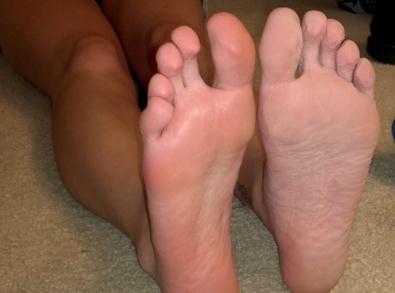Sweaty Feet – Causes, Remedy, How to Stop & Levels
What is Sweaty feet?
Hyperhidrosis is a medical term for excessive sweating that is not normal or usual. It can be generalized or localized. General Hyperhidrosis affects the entire body and is usually caused by an underlying condition, commonly by infections or by endocrine or neurological disorder.

Localized Hyperhidrosis involves a particular part of the body. It includes the feet (Plantar Hyperhidrosis), hands (Palmar hyperhidrosis), armpits (Axillary Hyperhidrosis) and groin because of active sweat glands in the following areas. The most frequently affected area is the armpits, hands and feet.
Excessive sweating of the feet or having sweaty feet can be embarrassing and disturbing in a person’s daily activities. Excessive perspiration can attract bacteria that results in foul-smelling odor of the feet and other conditions like Athlete’s foot. Therefore, early detection and management is important to prevent further complications.
Sweaty feet affects both men and women, most commonly between the ages of 25 to 64, but it can also start in early childhood.
Sweaty Feet Levels:
Mild Sweating
The soles are very moist and perspire much more than others, has mild undesirable odor and discomfort.
Moderate
Drops of sweat are present, but sweating is confined to the feet and occurs frequently. Mostly, it occurs 4 to 6 hours after taking a bath or shower. The skin is prone to blisters and swelling.
Severe
The sweating is immoderate, socks and shoes worn are wet. The sweat drips off the feet. The undesirable odor is intense. Blisters and peeling of skin are more common.
Sweaty Feet Causes
1. Idiopathic
The main reason of excessive sweating of the feet in still unknown.
2. Hyperfunctioning of Autonomic Nervous System
Overstimulation of the neuronal transmission to the sweat glands results in over-secretion of sweat.
3. Unsuitable footwear
Wearing unsuitable socks and shoes like shoes made with plastics do not allow evaporation nor absorption of the sweat, resulting in wet feet.
4. Withdrawal Syndrome
Alcohol and drug abuse is also related in hyper-secretion of sweat. Alcohol and drugs have an effect on the blood vessels, making them dilated and they raise the body’s core temperature, leading to increased sweating
5. Medications
Drugs like antidepressants, beta blockers and parasympathicomimetics may induce sweating.
6. Hormonal Disturbance
When certain hormones lose their function, it may involve excessive perspiration.
7. Overweight and Obesity
8. Disoder of the Thyroid Glands
- Hyperthroidism is the most common disease that manifests excessive sweating due to hyperfunctioning of thyroid glands and hypersecrition of hormones.
- Pheochromocytoma, or Adrenal Cortex tumor – this condition results in hyper-secretion of Epinephrine and Norepinephrine. These two hormones elevate the blood pressure and also stimulate excessive sweating.
9. Disorder of the Nervous System
- Nerve injury or damage can cause very unusual perspiration.
- Encephalitis or inflammation of the brain may also elevate sweat secretions
How to stop sweaty feet?
- Wear shoes without synthetic lining, or choose those with lined with leather.
- Allow your shoes to be ventilated after every use. This allows drying before shoes are worn again.
- Choose socks of man-made fibres because they can absorb and hold sweat very effectively. Socks must be exactly fitted, not too tight, to allow proper ventilation and air transport.
- You can try foot antiperspirant like Aluminum chloride solution. Apply it at night, allow it to dry and rinse off in the morning.
- Consult a doctor when infections occur, this is to treat immediately and prevent further complications.
Sweaty Feet Treatments
1. Iontopheresis
This is a treatment done by physiotherapist in hospitals. The feet are placed in a tub of water in which there is a very minimal amount of electrical currents passing. This will last for 30 to 40 minutes. It is non-invasive and does not involve surgical procedure.
2. Anticholinergics
These medication works with the nerves in-charge in sweating to reduce and prevent excessive secretion of sweat.
3. Antiperspirants
One common antiperspirants is Aluminum Chloride which decreases the secretion of sweat by obstructing the pores of the eccrine glands.
4. Botulinum Toxin injection
Botox injections block the nerves within the palms and soles. It is an invasive procedure that can be performed with just little amount of anesthesia.